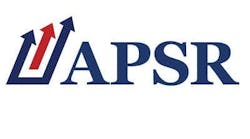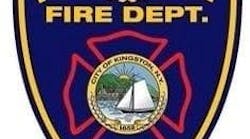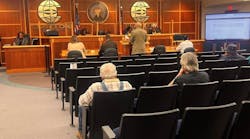There are many different kinds of reasoning. Some reasoning is by simple association. If you see very dark clouds coming your way, accompanied by lightning and thunder, you will probably conclude that it is going to rain, even if you do not understand the scientific explanation for rain. By experience you have learned to associate such dark clouds with rain. By experience, a fire marshal may associate a fire in the ceiling of a vacant top-floor apartment of a tenement house with arson. This kind of reasoning by association requires some knowledge or experience.
Another kind of reasoning is by comparison. Much of the "legal reasoning" done by a lawyer consists of comparing a case with other cases which have already been decided by the courts. When a firefighter is able to predict that a building will collapse during a fire, it is often by comparison to other fire scenes in which buildings have collapsed; it may not be possible to do a scientific evaluation of the situation at the moment.
Your firefighter exam will include three kinds of mental abilities related to reasoning. These are three kinds of reasoning which do not depend heavily on prior knowledge or experience. They are: inductive reasoning, deductive reasoning, and problem solving.
Inductive reasoning measures your ability to determine a rule or concept which fits specific situations. You will be given specific situations and then asked to determine the general concept which links or explains the situations.
Inductive reasoning is reasoning which goes from particular facts to a general conclusion. It starts with a number of particular facts. For example, a question may begin with some facts about fires and try to draw general conclusions.
For inductive rasoning questions, the answer choices are the general statements. You must test them one by one against the particular facts provided in the question. The facts may be statements. Or the facts may be data from a table. If you need to do some counting, you should write tallies or little notes. If you fail to take notes, you may end up with a few possible answers and not remember all of the details; then you will have to start counting again! It will save you time in the long run to take notes the first time you evaluate an answer choice.
A problem with inductive reasoning is knowing how many particular facts are needed to support a general statement. It would not be inductive reasoning to jump from a single particular fact to a general statement. At least a few particular facts are necessary before a general statement can be made. For instance, in reality no one would make a statement about when certain kinds of alarms occur on the basis of data from only one night's alarms. However, there are practical limits to how much data can be put into a test question. You should pick the answer which is supported best by the limited data in the question itself.
Inductive reasoning questions can take a lot of time. If you have several questions on the same set of data, it may be worthwhile to work out the answers immediately. But if there are a lot of data and there is only one question based on the data, you may want to skip this kind of question and come back to it at the end. Do not get bogged down when there are still lots of other questions to answer.Since 1950, Don McNea Fire School has prepared over 40,000 fire applicants with our entry level seminars and products. Fireprep.com has over 250 pages of FREE information and career articles to help you reach your goal of becoming a firefighter.
Go to www.fireprep.com and register for our free fireprep e-mail newsletter that currently has over 20,000 subscribers.
If you want to start getting that competitive edge immediately over your competition, our 14 day FREE e-mail series covers the written, psychological, oral interview and physical agility. This e-mail series will guide you step by step through the maze of the testing process to help you shorten that learning curve between you and that coveted badge. As soon as you sign-up you will receive the first e-mail with important inside secrets. You have nothing to lose and everything to gain!! Go to the link below for our 14 day e-mail series sign-up. Good luck !! Click here: Fireprep.com Free 14 Day Email Series
Click here: Free 50 Question Firefighter Practice Examination, Free Firefighter Exam Questions 1-10
Information on 'How to become a firefighter'
Don McNea Fire School www.fireprep.com
Click here to send an email
1-800-989-FIRE





